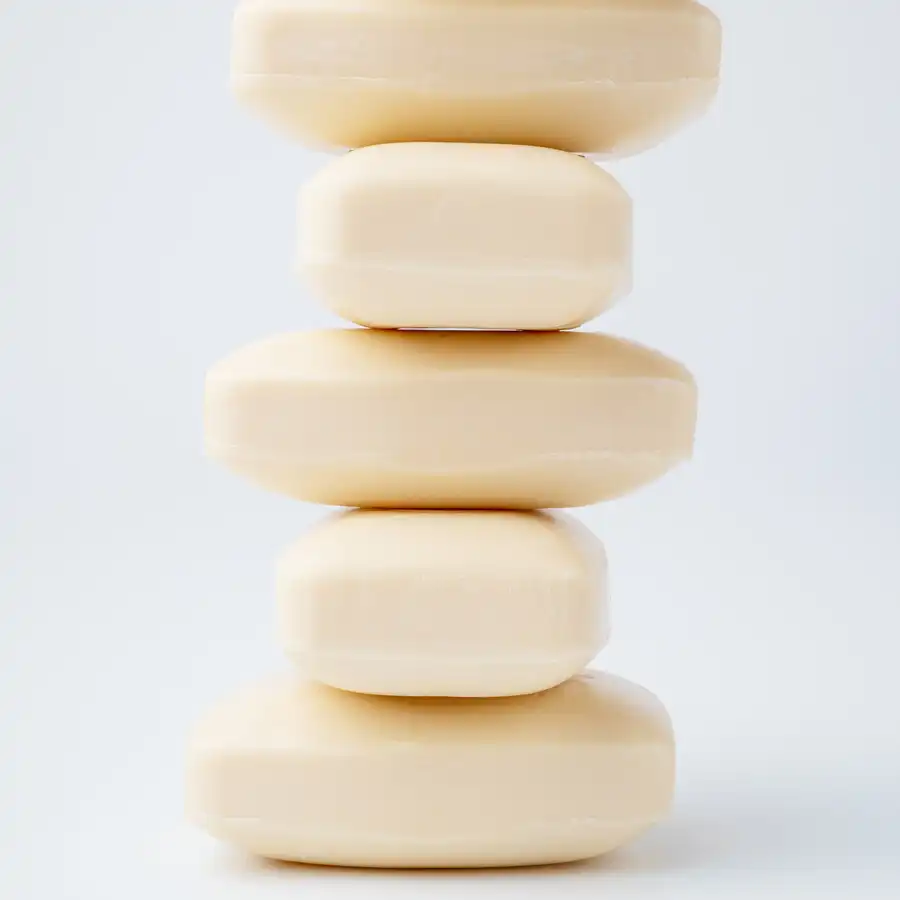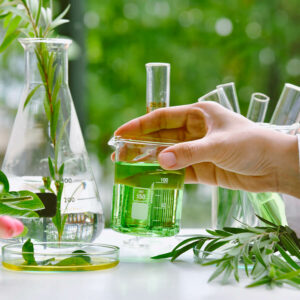
The word soap comes from a type of stone, used by the Romans for cleaning themselves. The first soaps were saponins, made from berries, woody seeds and were prepared from wood ash. In the past, it was sold as a luxury product and was made in Venice, Marseille or Castile, but many people made it at home.
Our company, Albogroup, has been producing soaps for more than 40 years. Our production of soaps and soap bars for hotels and large-scale destruction can meet all market requirements, from customisation to contract manufacturing. Moreover, they comply with all regulations for the protection of the environment.
Traditional soaps, in every size and weight, with ingredients of natural origin and special, sophisticated fragrances. Over 40 years of experience, Albogroup has developed many collections of hotel soaps and cosmetics, from classic lines with organic Olive Oil and organic Argan Oil, to collections of products related to the Eccellenze d’Italia.
As a manufacturing company, Albogroup develops and produces innumerable types of soap, from classic hotel soap to retail soap, and all productions are made directly in Italy at the company’s production sites. For example, we produce:
- Classic soaps and soap bars
- Soaps and soap bars with ingredients of natural origin
- Soaps and soap bars with organic ingredients
- Soaps and soap bars with classic and delicate fragrances
- Soaps and soap bars with strong and distinctive fragrances
- Soaps and soap bars with natural colours
- Soaps and soap bars with high glycerine content
- Soaps and soap bars with RSPO MB-certified palm oil
- Soaps and soap bars with Ecolabel, Nordic Ecolabel
Alongside traditional soap production, in recent years Albogroup has developed new production technologies for innovative Solid Cosmetics that are not soaps, but real cosmetics, with a very low water content, that have all the characteristics of a shampoo or shower gel and that release their full strength when in contact with water. They are a decisive step forward in terms of environmental sustainability.
In this article, however, we want to focus mainly on traditional soap and soapette production, the positive characteristics of this product and the services that a large company like Albogroup can offer its customers.
Production of hotel soaps by Albogroup
We have been involved in the production of soaps for more than 40 years, both for large retailers and hotel chains. We customise the soaps, giving the possibility of choosing the type of paste, shape, weight and packaging so that we can meet every request.
Having customised soaps that reflect the values a hotel wants to communicate is crucial to building guest loyalty. This is why Albogroup takes care of all production and development phases and offers a complete full service, also for third-party production. We are a very flexible and dynamic structure capable of responding quickly to market demands and for this reason we believe we are highly competitive, offering a product of excellence both for hotel cosmetics and for large-scale distribution or retail.
Although at first sight soap may appear to be a simple product, it actually encompasses a world of experience, technology and creativity. Just think of the fragrance. There can be infinite possibilities for customisation, and Albogroup offers its customers all its research and experience in creating a unique and recognisable product.
In reality, soap is a small masterpiece of design and product. And creating a soap collection is certainly an art.
Contact us for more information on the services
Soap ingredients and composition
When we see the words “neutral soap” on the label, we are referring to substances that contain surfactants and ‘foaming’ agents designed to protect our skin and clothes.
When it comes to customising soaps, one should not only focus on the packaging but also on the quality of the soap and its fragrance.
We create soaps with ingredients of natural origin with calming or toning plant extracts. They produce organic soaps, with glycerine, with natural colours and Ecolabel certified. .
Generally, oils are chosen and selected according to the beneficial characteristics they contain. The most commonly used ones are Olive Oil, Coconut Oil and Shea Oil. Special mention should be made of the use of palm oil as a fat base for soap, which we have already developed in this article.
Albogroup has always been careful to develop production processes that are increasingly sustainable and respectful of people and the environment. This is why it also offers its customers RSPO-certified production, i.e. using palm oil from certified, sustainable cultivation.
What should the pH of soap be?
When we talk about pH, we are referring to the amount of hydrogen ions that are present in a substance. These, in fact, determine its acidity. The pH scale ranges from a value of 0, which represents maximum acidity, to a value of 14, which is maximum basicity. pH 7 is neutral, like drinking water, while our skin has a pH of 5.5. Soaps always have a pH between 8 and 10. The acidity of our skin is important because it keeps keratin, which is composed of proteins, resistant and keeps bacteria and fungi away.
Quality soaps made by specialised companies such as Albogroup keep the properties of the natural ingredients in the formula intact. Generally, they are made with quality oils and are free of many chemicals and preservatives that we find in more commercial products for which industrial waste fats are also used.
The fact that soap has an alkaline pH is no problem for our skin. On the contrary, it benefits enormously, thanks to the presence of highly nutritious essential oils. On the market, there are soaps that are defined as neutral but this is impossible because with a neutral pH, saponification would not take place. To know the pH of the soaps we buy, we can use litmus paper to establish the precise level of basicity. A soap that is too basic could irritate the skin.
How did our grandparents make soap?
In the past, soap was regularly made from natural substances in every household in Europe. Olive oil or pork waste was used.
Certainly, our grandparents also periodically prepared soap at home. The process was very simple and they made it in their kitchens, with the help of a large pot, a wooden spoon, moulds and a thermometer. To make olive oil soap, you only need half a litre of oil, 150 grams of water and 64 grams of NaOH. The ingredients should be mixed together cold and left for two months in a cool, dark place. At that point, the soap will be ready for use.
Alternatively, we can replace the 500 ml of extra virgin olive oil with coconut oil or shea butter. For the hot process, you will need to heat water in a pot and cook the whole mixture until it becomes sticky. After two hours of slow cooking, it is removed from the heat and allowed to cool. Once it has solidified, the soap can be cut into slices. After three days, it can already be used. To make soaps suitable for scrubbing, coconut flour or coffee powder can also be added during preparation. These are energising substances that will give our skin many benefits.
Albogroup is your partner in contract manufacturing of soaps
The production of customised soap lines for hotels or retail is the core business of Albogroup. When it comes to customising soaps, the focus should not only be on the packaging, but also on the quality of the soap and its fragrance. Albogroup produces soaps and soap bars with natural ingredients tailored to each customer, using fine natural oils, including those of organic origin, natural extracts suitable for all skin types, or natural ingredients with soothing, moisturising, energising and toning properties. The fragrance of each line must also be carefully designed to make the product identifiable and in a certain sense unique. The universe of Albogroup hotel and retail soaps is a never-ending discovery!
Explore our hotel collections or our retail soap lines. Contact us for more information or to develop customised projects or contract manufacturing.



